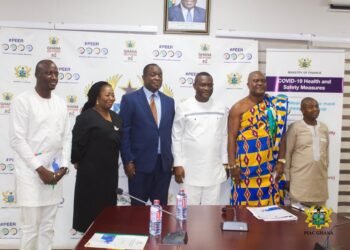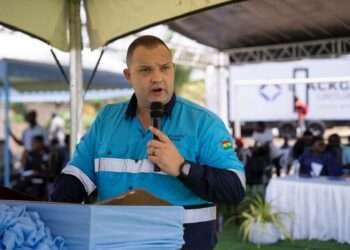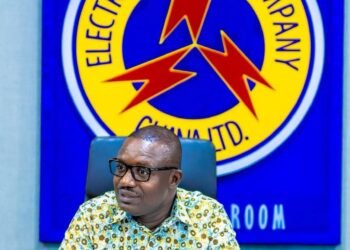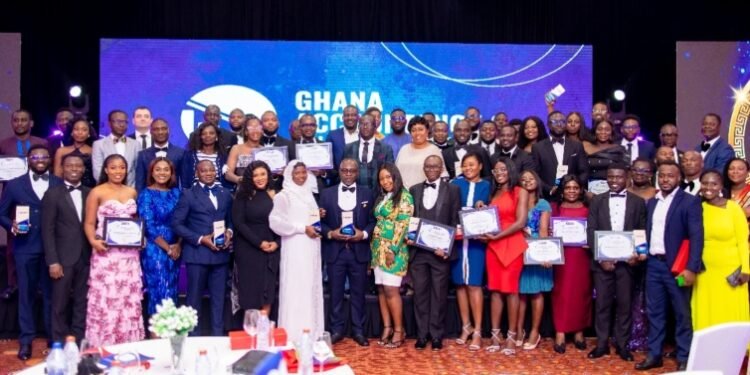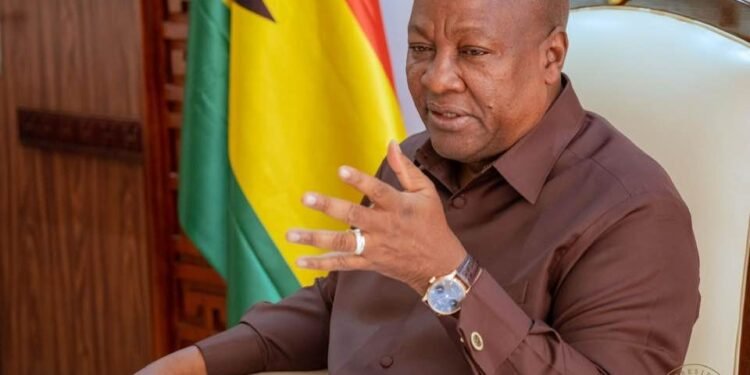Ghana has unveiled a bold commitment to transform its energy and environmental landscape, with clear blueprints designed to achieve net zero carbon emissions by 2060 while safeguarding economic growth and natural resources.
Speaking on behalf of President John Dramani Mahama at the 30th Conference of the Parties (COP30) to the United Nations Framework Convention on Climate Change (UNFCCC), Minister for Lands and Natural Resources and Acting Minister for Environment, Science, and Technology, Hon. Emmanuel Armah-Kofi Buah, said Ghana’s climate action strategy is entering a decisive phase of implementation.
“Ghana has moved from ambition to blueprints.
“Our energy transition framework outlines a pathway to decarbonize our energy sector and achieve net zero emissions by 2060, without compromising our socio-economic development or natural resources.”
Hon. Emmanuel Armah-Kofi Buah, Minister for Lands and Natural Resources and Acting Minister for Environment, Science, and Technology
Addressing global leaders gathered in Belém, Brazil, Hon. Buah reaffirmed Ghana’s leadership role in Africa’s climate and energy transition dialogue, noting that the country’s approach is grounded in justice, inclusion, and sustainability.
A Just and Inclusive Energy Transition

Hon. Buah explained that Ghana’s energy transition is guided by the principle of a “just transition”, ensuring that the shift from fossil fuels to renewable and clean energy sources does not marginalize communities or disrupt livelihoods.
“We are actively increasing the share of renewable energy and have embarked on a robust nuclear energy program.
“This is focused on long-term energy security, deep decarbonization, and positioning Ghana as a regional hub for clean power.”
Hon. Emmanuel Armah-Kofi Buah, Minister for Lands and Natural Resources and Acting Minister for Environment, Science, and Technology
He said the government’s Energy Transition Framework, launched in 2022, continues to serve as the foundation for Ghana’s decarbonization roadmap prioritizing industrial productivity, local content participation, and energy access for all citizens.
Buah highlighted that the country’s ongoing initiatives under President Mahama’s administration, such as the Solar for Industries Project and the Renewable Energy Master Plan, were concrete examples of Ghana’s determination to transition toward clean energy without slowing economic development.
Protecting Nature and Building Climate Resilience

Turning to the theme of nature-based solutions, the Minister drew attention to Ghana’s environmental vulnerabilities, emphasizing the urgency of protecting the Upper Guinean forest ecosystem, one of the most ecologically significant zones in West Africa.
“Yet for decades, we have watched the rains become less reliable, and the dry spells grow longer.
“The very vegetation and wildlife that define this region are struggling to adapt.”
Hon. Emmanuel Armah-Kofi Buah, Minister for Lands and Natural Resources and Acting Minister for Environment, Science, and Technology
Hon. Buah said the government’s climate action plan integrates forest restoration, biodiversity protection, and sustainable land management, which are crucial to maintaining Ghana’s ecological balance. “Under the visionary leadership of President Mahama, we are taking bold steps to protect our natural heritage,” he added.
The Minister said Ghana’s Tree for Life Programme a flagship reforestation initiative aims to plant 30 million trees annually until 2030.
The project is designed not only to increase carbon sequestration but also to create thousands of green jobs for Ghana’s youth while reviving the country’s forest economy.
Financing Green Transition

Hon. Buah’s address also underscored the centrality of climate finance and international cooperation in achieving Ghana’s ambitious climate goals.
“Through our newly launched green minerals and carbon market frameworks, Ghana is opening transparent pathways for global partners to invest in clean energy, forest restoration, and value-added mineral processing.”
Hon. Emmanuel Armah-Kofi Buah, Minister for Lands and Natural Resources and Acting Minister for Environment, Science, and Technology
He noted that Ghana’s participation at COP30 comes at a critical juncture for global climate diplomacy, as developing countries intensify their call for fair financing mechanisms to support adaptation and resilience efforts.
He said, “We welcome financiers, climate funds, and private sector leaders to partner with us in scaling these opportunities,” adding that meaningful collaboration was the key to bridging the global climate financing gap.
Hon. Buah’s remarks resonated with the central theme of COP30, which focuses on accelerating the implementation of the Paris Agreement and enhancing climate resilience through collaborative financing, innovation, and policy alignment.
As one of Africa’s emerging leaders in climate and energy diplomacy, Ghana’s message at the conference reflected both a national vision and a continental appeal for equity and partnership in global climate efforts.
With Ghana’s bold roadmap now taking shape, the government’s challenge lies in converting its detailed blueprints into tangible outcomes, cleaner energy systems, restored ecosystems, and an economy that thrives on sustainable innovation.
READ ALSO: Banks to Adjust Lending Rates Upward as GRR Edges Up for November 2025





